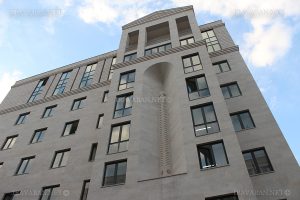On 2 November, the Ministry of Justice organized a discussion entitled “Course of Judiciary Reform in Post-Revolution and Post-Election Armenia” with the support of the Open Society Foundations-Armenia within the framework of the program “Partnership for Open Society Initiative”.
The Ministry of Justice reported that the discussion was held “with the participation of more than 50 stakeholders.”
Harutyun Aleksanyan, Member of the CSO Anti-Corruption Coalition of Armenia, President of “Elegia” Cultural NGO, in the conversation with Iravaban.net, said that he had not received an invitation and was not present at that meeting.
“The vetting of the judicial system should have been carried out after 2018. However, it had to be done not through blocking the courts or chasing the former judges of the Constitutional Court, but through judicial reform. A reform that would ensure the independence, impartiality of judges, as well as their neutrality from political processes and dependence on the ruling party,” Mr. Aleksanyan said.
He noted with regret that the authorities did not follow the indicated path and did not take into account the opinions of the civil society and the experts.
“Instead, an attempt was made to bring their loyal and obedient judges to the judiciary. As a result, the current judicial system, with few exceptions, carries out the instructions of the authorities, arresting or releasing this or that local government leader or persons they do not like, according to the instructions coming from above. Vetting, or rather the adoption of a new judicial code, is a necessity,” he said.
Iravaban.net has already referred to the veiled event dedicated to the judicial reforms of the Ministry of Justice and some civil society organizations that have become partners.
To recall that on 1 November, the CSO Anti-Corruption Coalition of Armenia (currently includes 71 civil society organizations) and the Armenian Lawyers Association published two joint expert studies on Integrity Checking and Responsibility of Judges under the extraordinary conditions (of transitional justice) and the Guarantees of Independence and Effective Functioning of the Court.


















